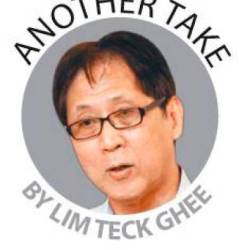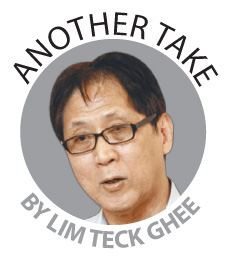AS I write this, following Trump’s lacklustre speech to the nation announcing his plans to minimise the human toll of the coronavirus outbreak, Dow Jones has gone into a free fall, definitively signalling the end of the bull market and intensification of the bear market.
Stock markets are being battered by the spread of the coronavirus and the impact on vital segments of the national and global economy such as consumer spending, the services sectors, the travel industry, industrial production and other sectors.
How long the downturn will last is not clear. But the dreaded “recession” word is now being bandied around by many previously optimistic economic analysts.
Malaysia’s double whammy
It is possibly the worst of times to be a politician in the country. Besides the unprecedented challenge of a global health crisis bringing markets all over the world into unknown territory, we also have political turmoil which has brought in a government with question marks over its legitimacy and durability. The change in government has also left most parties and politicians bereft of public respect and confidence in their ability to steer the nation to more calm and safe waters.
Our politicians waiting for the resumption of Parliament in May should know that it cannot be business as usual. Even before the sharp market falls of the last few days, the Malaysian economy was already in a swoon.
The best economic indicator perhaps is that of foreign direct investment (FDI) inflows. Much of our skilled employment, manufacturing capacity and foreign exchange has been dependent on FDI in which we have been a relatively good country story for some time.
Well, that good story has now come to an end. After reaching a peak in 2016, FDI flows have started dropping. In 2018, FDI flows dropped to US$8 billion despite the recovery in the rest of the Asean region. What is notable is that from being one of the highest recipients of FDI in the region, we are now ranked fifth behind Singapore, Indonesia, Vietnam and Thailand. And the situation is likely to get worse, not better.
It is not only slow growth, weak earnings and increasing loss of competitiveness that have turned off foreign (and local) investors. Less written about but often the main subject of discussion in the cocktail and exclusive coffee circuits is the country’s inability to get its socio-economic and political reform programme off the ground. In fact this reform programme is seen to have taken several steps backwards.
“Maruah” congresses, rallies to rouse the masses to stand firm on the establishment of an Islamic state and other perceived racial and religious grievances, boycott campaigns against those construed as disloyal or targeting non-Muslim products, refusal to deport Zakir Naik which has resulted in the partial loss of the significant Indian market for our palm oil – these developments and a daily toxic mix of race and religious xenophobia have come to dominate WhatsApp and the social media of Malaysians and other residents, especially after the last election.
Many of the foreign businesses that have invested here have done so for the long term. If they are polled on what it is that has attracted them to invest and remain here, many will point to the English speaking workforce and the lifestyle in our multiracial and multireligious society. It is not simply the lure of profits but the confidence that we are not going the way of Islamic nations, save for the few Middle East countries where their oil income is the main attraction.
But with the latest double whammy of the virus shock and government change, investors will be looking very closely now at the policy agenda of the new government. And it should not be a surprise if their fears of an intensified anti-reformist and socially conservative agenda – coupled with the amber light flashing on the country’s financial management capability seriously undermined by the plunge in oil prices – will lead some to walk away from the country.
Really an inclusive government?
Today, all analysts are agreed that the new government – although it has been termed an inclusive one by one recently appointed minister – is a Malay Muslim-dominated one, perhaps the most Malay dominated in the nation’s history.
Can this – and a new sense of security inculcated in the majority population – lead to a less toxic, more moderate, and less race and religion-obsessed polity? Or will it result in an even more “Malay first” nationalistic and Islam-oriented polity bent on implementing policies programmed with racial and religious outcomes and favouring a new crop of cronies?
For now, avoiding the cliff fall depends on our members of Parliament who have to reboot the economy.
Here’s one small suggestion that the new government may want to consider to improve the economic literacy of parliamentarians and to help them navigate the nation through this period of crisis.
Compile a selection of the economic reports written by analysts of the foremost business, banking and investment bodies in the country. Identify especially those that deal with the issue of business confidence, investment flows, etc. These reports can include those from the nation’s chambers of commerce and a few credible think-tanks.
Undertake Bahasa Malaysia translations as these reports will be in English or other languages
Disseminate a portfolio of the documentation to MPs so that they can read them during the two-month hiatus before Parliament reconvenes
Hopefully this exercise can give pause to those who, absorbed in the game of thrones and agitating for a bigger share of the government takeover spoils and assertion of greater racial and religious dominance, appear to be unaware of how close we are towards the cliff fall.
Lim Teck Ghee’s Another Take is aimed at demystifying social orthodoxy. Comments: letters@thesundaily.com















